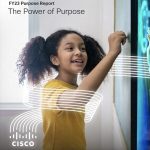This blog was written by Jacob Martinez, Founder and CEO of Digital NEST – a technology workforce development hub that provides youth in rural communities with high-demand technology skills, mentoring and hands-on experience so they can secure well-paying jobs. He is a 2020 recipient of The James Irvine Foundation “Leadership Award” and a 2018 Draper Richards Kaplan Foundation “Entrepreneur Fellow.”

The buzz, clickety-clack of keyboards, low whispers exchanging ideas and solving problems. These are the sounds emulating from Digital NEST’s Latinx youth tech hubs.
Barely an hour south of one of the wealthiest regions in America are hotbeds of untapped talent. Towns like Salinas, Watsonville, Gilroy, and others feathered across California are predominantly Latinx. Despite the proximity to the global seat of innovation – Silicon Valley – there is a clear demarcation of who gets to work at a technology company and who doesn’t.
I live in Watsonville where the Latinx population is 82 percent. One night in 2014 I was on a walk and saw a young college student sitting in a parking lot working on her laptop. When I asked why she was there, she said it was the only place to access the internet to complete her homework – she didn’t have an internet connection at home. That moment was an epiphany for me: I realized we have all these brilliant, young Latinx minds in our community who deserved much more than we were giving them.
As a response, I founded Digital NEST – a technology workforce development hub that provides Latinx youth (ages 14 to 24) in agricultural communities with high-demand technology skills, mentoring, and hands-on experience so they can secure well-paying jobs. We provide youth in overlooked agricultural areas with the technical and professional skills training, on-the-job work experience, and connections to a network of industry professionals – a game-changing asset typically reserved for their more affluent peers.
Many of our youth members’ parents work in low-wage, insecure jobs with no benefits in sectors such as landscaping, retail, and restaurants, or on farms picking our food. The majority only speak Spanish. And most don’t have devices – they share one cell phone among their families – piling unnecessary stress on youth who want to do well in school but don’t have the tools to do so. Opportunity to succeed seems out of reach for many of our kids.

We decided to create an environment where youth feel respected, like they belong, and have a supportive community, so they can envision a different future for themselves. Digital NEST helps our members learn and connect. Our business consultancy, bizzNEST, is one example of how.
Building skills for tech careers

bizzNEST is where we place members in real-work settings to build skills for tech careers. These experiences put them in spaces they normally don’t have access to and are essential to prepare them for the workplace. We also run professional skills trainings where members learn conflict resolution, negotiation, diplomacy, and management – skills most youth don’t have. Since 2017, bizzNEST member consultants have worked a total of 40,620 hours on 216 projects, earning more than $682,425.
Our members have created content for our school district, designed and developed websites for international food companies, created videos for Silicon Valley entrepreneur and venture capitalist Guy Kawasaki and integrated managed care consortium Kaiser Permanente, and developed an online directory for small businesses to sustain through COVID.
But we’re more than a career center – we’re a community, a family. We focus on transition points where youth are usually left to find their own way. Youth who graduate high school and transition to college, college graduates looking for more experience to start a career, and high school students who aren’t college bound and want to train up and get connected to a well-paying job – we bridge the spaces for them.
Access to networking and new opportunities

One of our members, Alex Chavez, is a perfect example. He was our first member consultant of bizzNEST. He was attending San Jose State University when we connected him with an internship at a startup that supported him through school. After graduating, he got an engineering job at a company that went public. When he left that company, he returned to us for support to re-enter the workplace. We linked him with a Digital NEST alum who got him a job at his company. This is the virtuous cycle of our community – that even when our former members leave “the NEST,” they stay connected to help their upcoming peers get jobs too. They’re developing an influential network of their own.
This is the power of what we’re creating at Digital NEST. Anyone can take an online course, but our members get access to a network – an opportunity they’ve never had before. They become fully empowered to create a new destiny for themselves and for their communities.
Much of our work wouldn’t be possible without the grant support Cisco has given us over the years. The company has helped fund our two existing centers in Salinas and Watsonville.
Our Cisco partners have faith in us, in our ideas – they believe in our vision, and that gives me hope that we’ll hear the Digital NEST buzz in every community across California.



Love this story! You’re doing great things, Jacob. Keep playing it forward ?
Thank you. Please share.
What a great story. I enjoyed reading about the history and future of these young adults in rural CA.